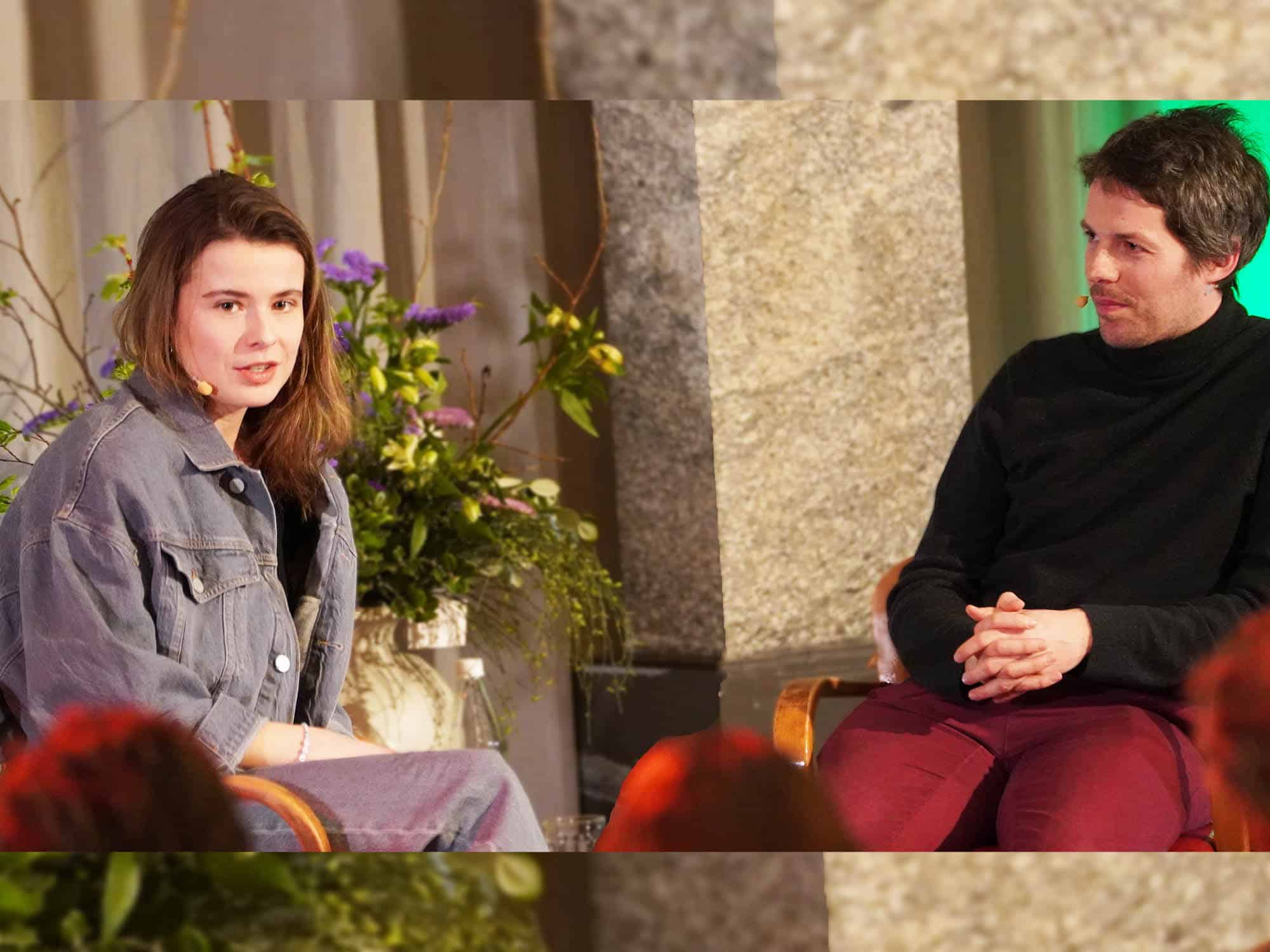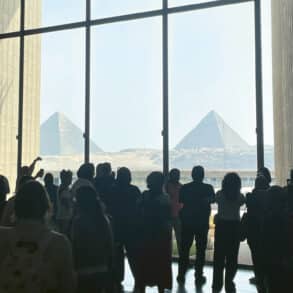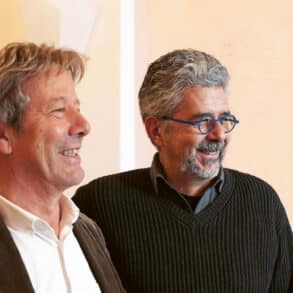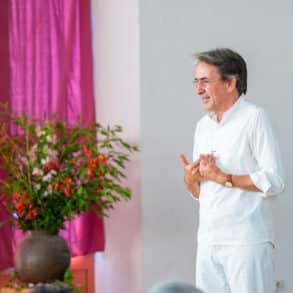Luisa Neubauer in conversation with Philip Kovce for the “Politics Talks” series at Unternehmen Mitte. Her call: to overcome fossil thinking and live with determination and a willingness to compromise.
The Caféhaus Unternehmen Mitte was filled to capacity. Many of the visitors couldn’t see the stage where Philip Kovce and Luisa Neubauer were in conversation. Instead of leaning around a pillar to get a clear view or pushing their way to the front, they used the limitation as an opportunity for contemplation. Head in hands, they listened to the 29-year-old climate protection activist’s answers and seemed to be attentive on two fronts: one ear towards the podium and the other towards themselves and their own life questions and contradictions.
Luisa Neubauer picked up on this mood: “The world is complex, and we all have lots of worries and crises. And just as, in my eyes, it was never the idea to have a million schoolchildren on the streets every week reminding adults to do their job, it’s not about talking about the climate all day long either.” Fridays for Future, whose face in Germany is Luisa Neubauer, cannot be the “babysitter of the nation.” Instead of constantly thinking about the climate, we should “think with it.”
In other words: “The climate crisis is not the elephant in the room – the climate crisis ‘is’ the room!” For Neubauer, this means that all of today’s issues and crises should be solved in the light of climate protection. Whether tackling child poverty, the social divide, the loss of biodiversity, Russia’s attack on Ukraine, or the housing problem—climate protection should be taken into account. What’s more, the new crises that arise help us to be more creative when it comes to the climate issue. Neubauer suggested that the multitude of crises should not be tackled in competition with each other, nor that one crisis should be tackled at the expense of another, but that this concert of problems should be dealt with synergistically. In this way, she sketched an image of ecological holism. It is not important for a few active people to be 100 percent ecological, but for as many people as possible, ideally, all people, to have ecological ideas in mind. In a complex and contradictory world, she argued, an absolute claim is harmful. There are no “pure solutions.” Rather, we must continuously find compromises while remaining true to ourselves and our ecological conscience.
Saying Goodbye to Fossil Thinking
What doesn’t work, according to Neubauer, is always attempting to please those who caused the crisis. Here, she coined the adjective “fossil”: there were fossil life plans in the 20th century, there were fossil careers, fossil autocrats, fossil warlords, and fossil forms of government. This perspective revealed the destructive, anti-life attitude inherent in all these areas. For Luisa Neubauer, it is, therefore, not primarily a question of swapping the combustion engine in the garage for an electric car or replacing the gas burner with a heat pump. These steps are, of course, necessary; they are the result of a deeper self-examination and self-education about the meaning and ethics of life. Ecological action is based on recognizing the fossil lifestyle as such and exposing its recklessness and hostility to life. “Climate protection is then reflected in the way we look at the world and whether we are controlling, angry, and arrogant, or loving, mindful and peaceful.”
According to Neubauer, a more climate-friendly life is a happier life. She thus countered the accusation that climate protection activists were losing their joie de vivre in the face of their doomsday scenarios. Why should we campaign for the preservation of life if it brings depression as a side effect? Only when we can feel the fear and anxiety that come with ecological catastrophes can we find joy in the beauty of nature. According to Neubauer, there are numerous studies that show this psychological connection; fear of loss and joy in what we have are two sides of the same coin. This also applies to determination and the ability to compromise—being true to oneself and welcoming the contradictions of life go hand in hand.
At the end of the hour-long discussion, Neubauer built a broad bridge: the beauty of a cultural shift towards more climate protection is that it is a deeply communal endeavor, she said. We are dependent on our fellow human beings to do something about climate protection. Climate protection thus builds a bridge to humanity in everyone. As she presented this idea, the Unternehmen Mitte went quiet. She had turned what is often taken as an excuse to do nothing into the opposite: precisely “because” climate protection is not self-interest, it is worth striving for. What Luisa Neubauer did not say was the golden backdrop for the conversation and permeated the atmosphere in the café. You could see it when you looked into the eyes of others: it’s about the region of the heart, the compassion, and the amount of love that you are capable of, for yourself and your environment.
Later, in a personal conversation, I ask why climate protection activists are met with so much suspicion and even hatred. “Many see themselves as degraded in their fossil life’s work,” she replies, adopting an empathetic tone. Two sides to the same coin: the earth’s climate and the social climate.
Events UM Politics Talk
Translation Laura Liska
Image Luisa Neubauer and Philip Kovce, photo: Wolfgang Held









